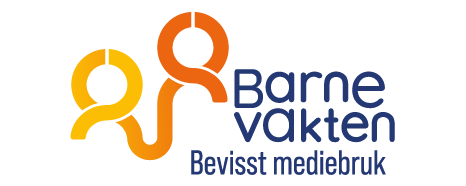
Are you new to Norway? Here are some tips for your children’s digital life.
Norwegian Schools Provide Computers
Welcome to Norway! When your children begin in a Norwegian school, they will be given a computer to borrow from the school, such as an iPad or a Chromebook. Some schools require that these devices be taken home daily for homework.
This means that your child can use the school computer to access the internet, play games, call relatives, and more. There are many positive things online, but there are also risks and dangers.
What Is Norwegian Culture?
«Kids and Media» has spoken with refugees arriving in Norway. Different countries have different cultures. In Norway, children and young people are quite independent. At the same time, it is common for Norwegian parents to discuss various issues with their children, whether they arise online, at school, or elsewhere. It is also common to give older children more privacy, as stated in the UN Convention on the Rights of the Child.
In practice, this means that parents should keep very young children away from the internet and allow them to gradually use more of it as they grow older.
It also means that while parents can monitor the digital lives of their youngest children, they should give teenagers more privacy and not check every website they visit.
Four Important Guidelines
Show a positive interest in your child’s digital life. Ask positive questions about their online experiences each day. If you are only strict and skeptical, children may become secretive and not share their experiences.
1) Set household rules for internet use. In Norway, it is common for children to have a say before parents make decisions. Household rules may include:
- Which apps and games the child can use
- Following age restrictions on games and apps
- Not using the internet at night
- Not sharing private information such as home addresses, email addresses, or credit card details
- Not sharing pictures of others without asking for their permission
2) Use app and game settings. Your child’s digital life can be safer if you use built-in safety settings. Two examples:
- In Snapchat, there is a map that shows the child’s location. Are you comfortable with that? You can turn off location sharing.
- An «open profile» in games and apps allows strangers to contact your child. This is risky. With a few clicks, you can disable this feature, making the app or game safer.
3) Educate yourself. As a refugee, you can receive free weekly emails with tips and advice. Contact post@barnevakten.no for more information.
4) Have a Plan in Place
It is important that your child feels comfortable coming to you if they experience something negative online. This could involve bullying, disturbing content, strangers trying to make contact, potential scams, misunderstandings, arguments with friends, or other issues.
Many children fear that their parents will take away their computer if they report a bad online experience, so they may choose not to say anything.
This is why some parents promise their children that they will not take away their computer but will instead help them deal with the situation.
When «Kids and Media» visits refugee centers, we see that different cultures have different approaches. In some countries, children are expected to handle their own problems. In Norway, cooperation between parents and children is common.
Have a plan in place before something negative happens. For example:
- Tell your child that if something negative happens, they can step away from the computer without turning it off and come to you.
- Take a screenshot as evidence.
- Block the other person within the app or game.
- Stop the chat.
- Report the issue to the app company if it violates community guidelines.
- If the issue is serious or illegal, report it to the police.
Language Barriers and Misunderstandings
When learning a new language, misunderstandings can happen. Irony, slang, words with multiple meanings, idioms, and fixed expressions can be difficult to understand. On the internet, body language is also missing. A negative experience might simply be a result of a language misunderstanding.
Right to an Interpreter
In many situations, immigrants have the right to a free interpreter, as stated in the Interpreting Act.



